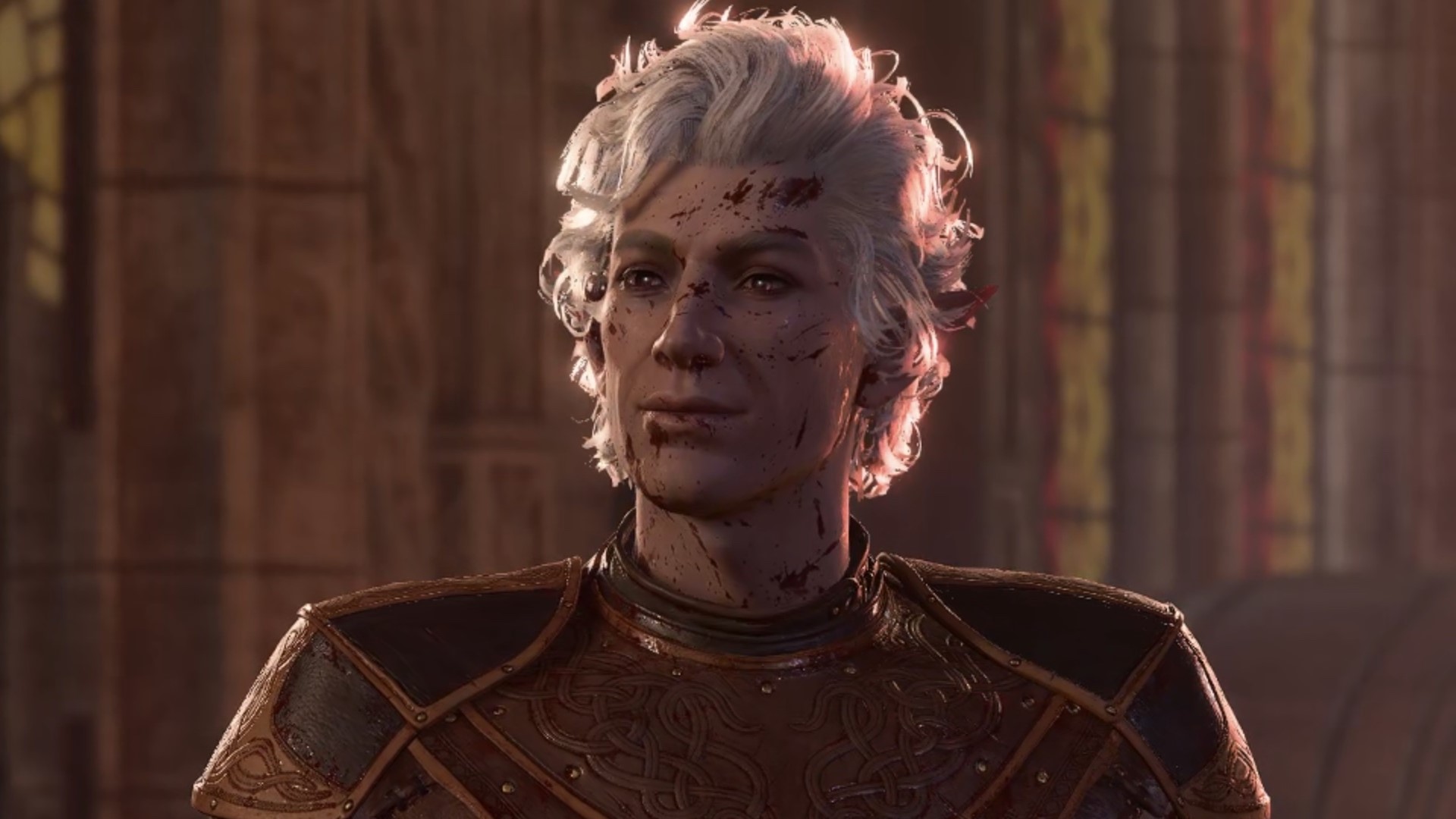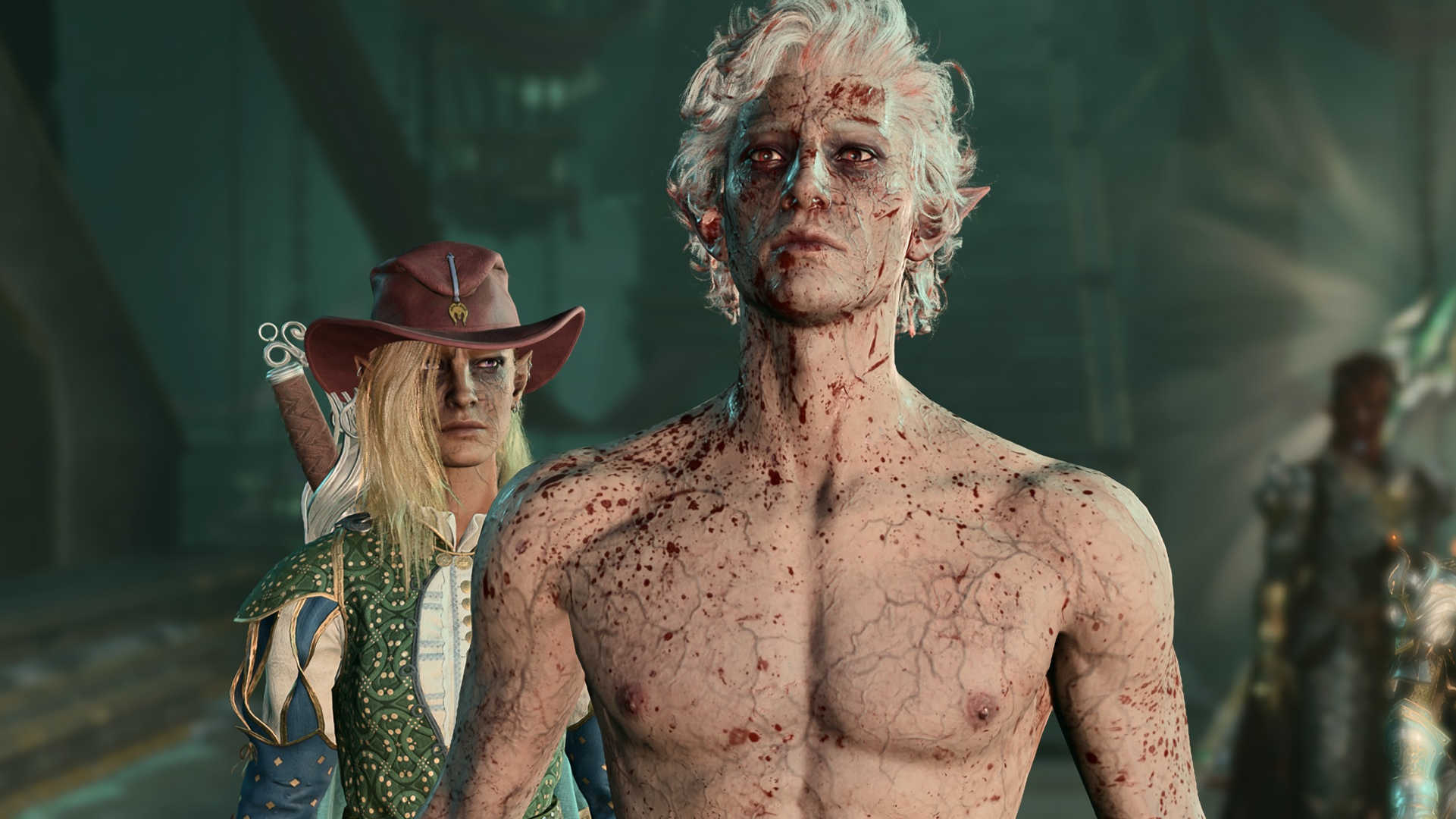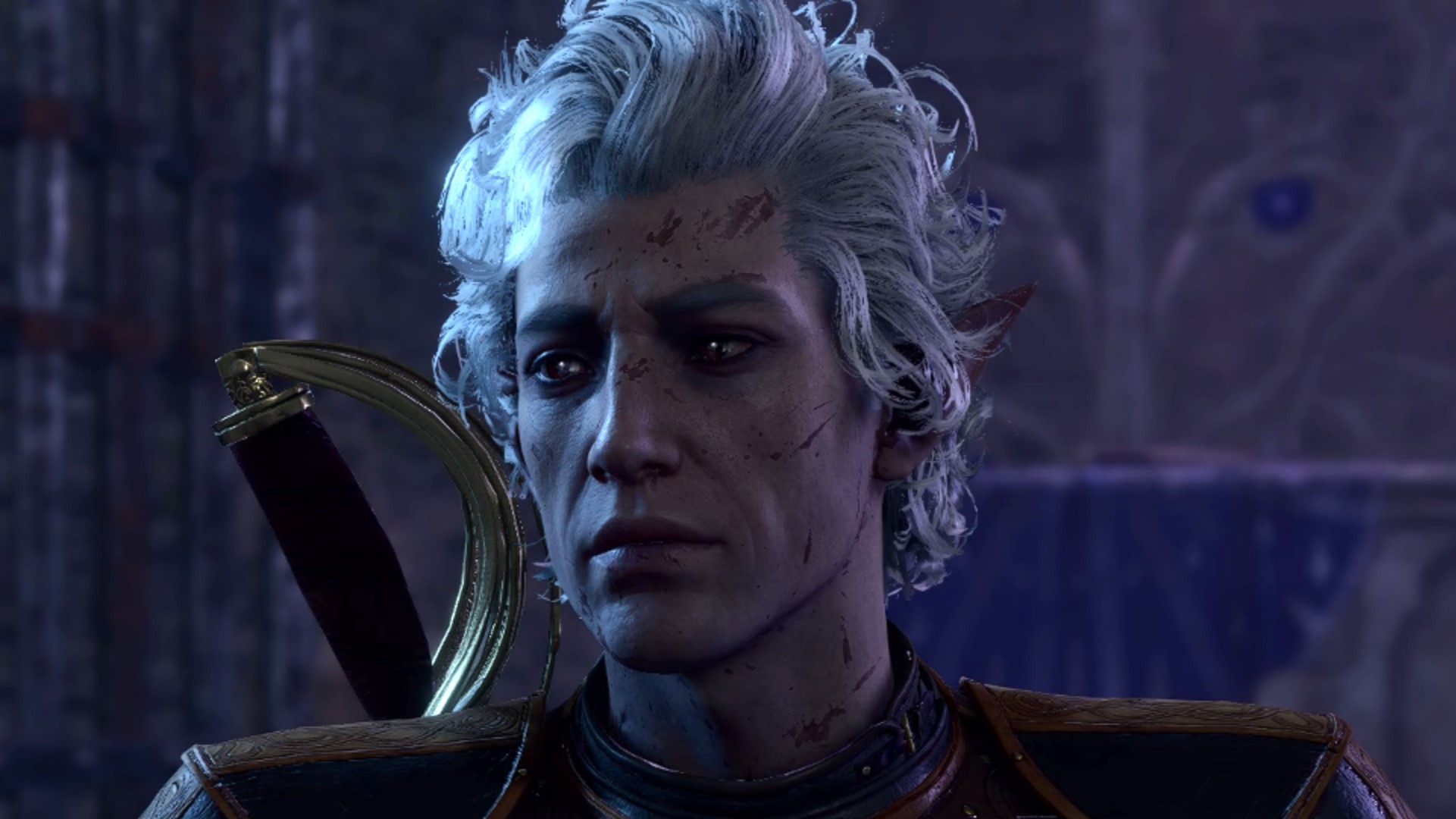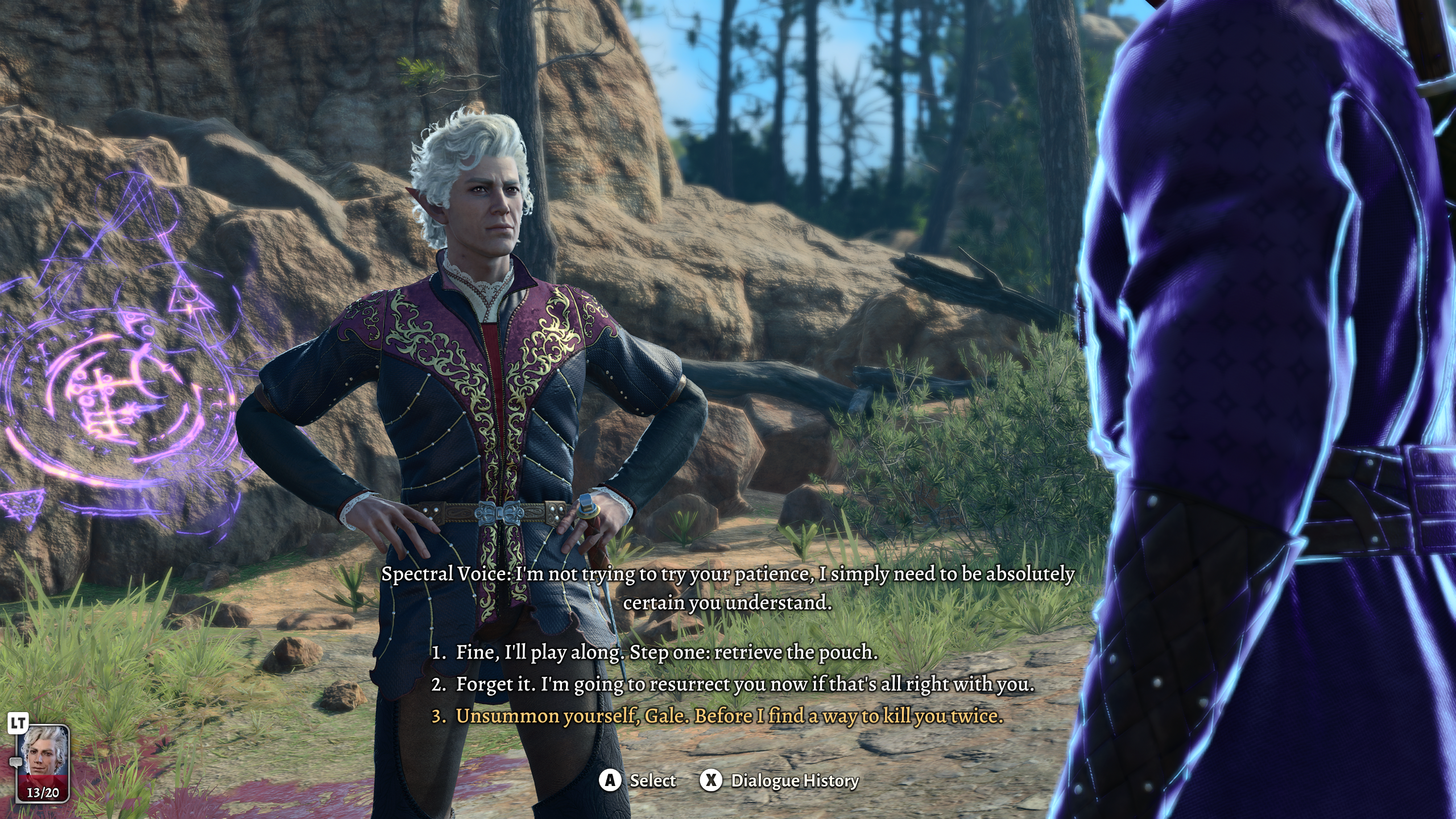Baldur's Gate 3 knocked my RPG halo off, and it's all Astarion's fault
Opinion | Baldur's Gate 3 has made me challenge the meaning of good versus bad in video games

My heroes of RPGs past all share one thing, the fact that they're just that: heroes. They're defenders of the people, saviors, paragons of virtue, and goody-two-shoes if the occasion calls for it. It's almost always possible to tow a straight and narrow line in the best RPGs, and doing so is a difficult habit to shake. Taking more questionable moral paths just never feels quite as compelling, often restricting things rather than opening them up. Some infamous Witcher 3-style dilemmas aside, it's usually less about confronting desperate situations with no 'right' answer, and more about being, well, an arsehole. Doing an 'evil' run as an end in itself.
Companions with other moral perspectives can be pivotal, but none have ever really tempted me to stray. Sebille, Johnny Silverhand, Atton Rand, Alistair, they all came around in the end. Others – like, say, Solas and Camellia – wrote themselves off as wrong 'uns. And some even eclipsed me with their own gleaming goodness (Kim Kitsuragi, you made my Harrier Du Bois a better man). Then Astarion, the bitey-rogue-in-chief of Baldur's Gate 3, came along.
Fang club

Approval systems are nothing new, but Baldur's Gate 3's is the first to seriously challenge my needy-pup brand of do-gooding, all through Astarion's, er, feedback. Okay, yes, he's often an arsehole, but there's logic in it. He insists on freedom and self-respect – but he insists I have those, too. BG3 shifts the focus from what I do for my companions to what I choose for myself – and for us – to a startling degree.
I don't like the cut of Lae'zel's jib, either. I'll help her because I'm capital-g Good but she should say 'please', right? Right; thanks. Jaheira seems cool but, yikes, I shouldn't have to drink spiked wine, should I? Zevlor expects me to drop everything to go negotiate peace? There's a ticking, tadpole-shaped timebomb in my head, so maybe not right now, yeah? Those 'Astarion approves' dopamine hits were clear: I can still do good, but I don't need to be a doormat. It wasn't just about exhausting his dialogue, completing his questline, stroking his ego, or buying him things, as RPGs often tend towards. He reflected my choices back, challenging me to raise the bar for myself. But then it went deeper than I ever expected.
Larian's writers have discussed how central the struggle between good and evil is to BG3 and your character's role. You're in a fraught, desperate mess, and it's hard to identify right and wrong among the parade of poisoned chalices. Astarion is the game's greatest embodiment of this; he pulls you right into the maelstrom, and you can't just look away – you're implicated. He reveals his awful history, the abuse he endured for so long. Key themes emerge, not least the right to self-determination and bodily autonomy, ones I can easily get on board with, not least because of the illithids' looming takeover of my character's own mind and soul.
Astarion makes no bones about his desire for ugly revenge and, later, a troubling power grab to become a dangerous vampire ascendant. But his expression of those desires is framed with the full force of his trauma. "Heroes are half the damn problem. Fools that believe in right and wrong – good and evil," he says. "The strong had two centuries to pluck me from torture, but no-one came. No, it was the mind-flayers that rescued me. They gave me a gift: the strength to take my own freedom." He's not wrong. His fears are rooted in a truth: most 'good' people would stake him, a 'monster', on sight. But what does it all justify? What versions of 'good' make killing him or helping him 'bad'?
Fight the power

"That changed everything. Baldur's Gate 3 exploded all notions of RPG-flavored goodliness I'd long relied on. I couldn't be a hero here – and I'm not sure I even wanted to."
Astarion's story dismantles any notion of objective right while all the time saying: 'choose'. And I did choose. We killed Gandrel. I turned on Yurgir. I agreed to help slay Cazador on his word alone. All to do this desperate, trapped guy 'good' even at the cost of something greater, nobler. He pushed me to limits I'd never tiptoed near before.
Weekly digests, tales from the communities you love, and more
There's power in what he inadvertently reveals about his internal, raging duality, too. He's an absolute tangle of contradictions in a way most RPG companions – and their mostly straightforward moral compasses – just aren't. He's known great harm, but will harm others. He prizes freedom but will take others'. He worries for his spawn 'siblings'; he'll also sacrifice them to ascend. He's pretty flippant about some victims (the Gur children) but tortured about others (poor Sebastian). It's difficult to face sometimes, but it made me see the shallowness of my endless quest to pursue some objective 'good'.
When Astarion's arc hit its climax, I couldn't see the forest for the trees anymore – no good or evil. Both major decisions are framed as 'help him out of this nightmare'. Help him reclaim autonomy, to feel he'll "never have to fear anyone, ever" again, despite the enormous cost; or talk him down, while banishing him into darkness. Either way, he's a vampire in a world of juicy necks. What's the greater 'good'? And, honestly, do I even care anymore? That changed everything. Baldur's Gate 3 exploded all notions of RPG-flavored goodliness I'd long relied on. I couldn't be a hero here – and I'm not sure I even wanted to.
I won't tell you what I chose because it doesn't matter. The journey upended the habit of a gaming lifetime, and was all the richer for it. For that, to Astarion's writer Stephen Rooney and actor Neil Newbon I doff my halo. It was getting too bright anyway.
If you've yet to try Larian's latest, you should totally check out our Baldur's Gate 3 review
Carrie is a former News Editor at PCGamesN, now a freelancer and writer based in the sunny UK. With a master’s in English Lit from Oxford, she has a special interest in dissecting narrative and characterisation, and exploring games’ unique powers for storytelling. She’s an RPG nut who’s never happier than when saving fantasy worlds, scorching foes with spells, and trekking virtual miles on her companions’ every whim. She’ll tell you just how many hundreds of hours she’s plugged into Baldur’s Gate 3, Divinity: Original Sin 2, The Witcher 3, and Skyrim if you ask really nicely. Also a Fable obsessive, so only mention it if you *really* want to lose a few hours of your own.




